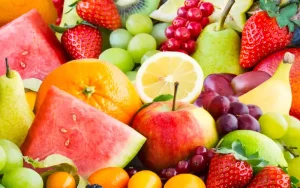In recent years, U.S. consumers have shown interest in foods and beverages associated with health benefits. This is a significant influence on purchasing decisions for 6 out of 10 consumers. Shoppers are focused on prioritizing nutrition and are increasingly turning to functional food made from fruit products to improve their diets (Sloan, 2022).
The following are the benefits of the use of fruit-derived ingredients in the production of functional food.
Benefits of fruit based functional food
In the United States there is a growing concern for health, healthy eating, and foods with special benefits. Most of all, functional products prepared with ingredients derived from fruits, prebiotics, and probiotics, among others (Garcia, 2020; Falco, 2020).
This is functional fruit food that promotes naturalness but is linked to foodtech. It enriches the nutritional value of commodities and provides benefits, such as the following (Sloan, 2022; Garcia, 2020; Interempresas, 2022; Lopez et al., 2020):
1. Functional fruit food strengthens the immune system
The consumption of functional fruit products plays an essential role in immunity and disease prevention. This fortified food provides vitamins and minerals that help the body to strengthen the immune system. It reduces the risk of developing gastrointestinal diseases, improving digestive health, and maintaining healthy intestinal flora.
2. Functional food contribute to physical and mental performance
Energy, mood, mental, and emotional health are among the reasons behind the consumption of functional fruit products. This type of food can enrich the nutritional value of the commodities with ingredients that provide physical performance to the body for daily activities. In addition, it is related to soothing and relaxing benefits on memory, concentration, and cognitive skills.
3. Functional fruit allow personalized styles of feeding
Functional fruit products allow consumers to maintain a personalized eating style according to their needs. Due to the use of technology, this is a growing and constantly changing industry sector. As a result, there are more and more options for functional food that can be made with fruits and the niches in which they are integrated. This increases the possibilities for consumers to design eating patterns according to their tastes and needs.
4. Functional fruit is cleaner and more sustainable
Some consumers perceive functional products as healthy when they are produced using ethical methods. In fact, 4 out of 10 people think that foods with fruits grown with sustainable techniques have a higher content of vitamins and minerals, thus increasing their functional properties. The use of raw materials, such as simple puree or concentrate, helps to reduce waste, and avoids the use of by-products. It also reduces water consumption and has fewer pesticides, which minimizes environmental impact.
Functional food is one of the influential trends in the food industry. This reflects the increase in its presence as a response to the concern of consumers to have an adequate diet. In addition, it has favored the development of new products with fruits that offer health benefits and maintain their organoleptic properties, providing better flavors. Therefore, including them in final products is a good market innovation strategy option.
Bibliographic
- Falco, C. (2020). Functional processed products. Promperú.
- García, G. (2020, May 7). Functional foods, what consumers are looking for. The Food Tech.
- Interempresas (2022, October 11). Functional foods: a market to be explored.
- López, C., Remacha, A., Luna, C. and Layunta, M. (2020). Functional foods: health benefits and disease prevention. Bibliographic review. Ocronos Journal.
- Sloan, E. (2022, April 1). Top 10 functional food trends.







